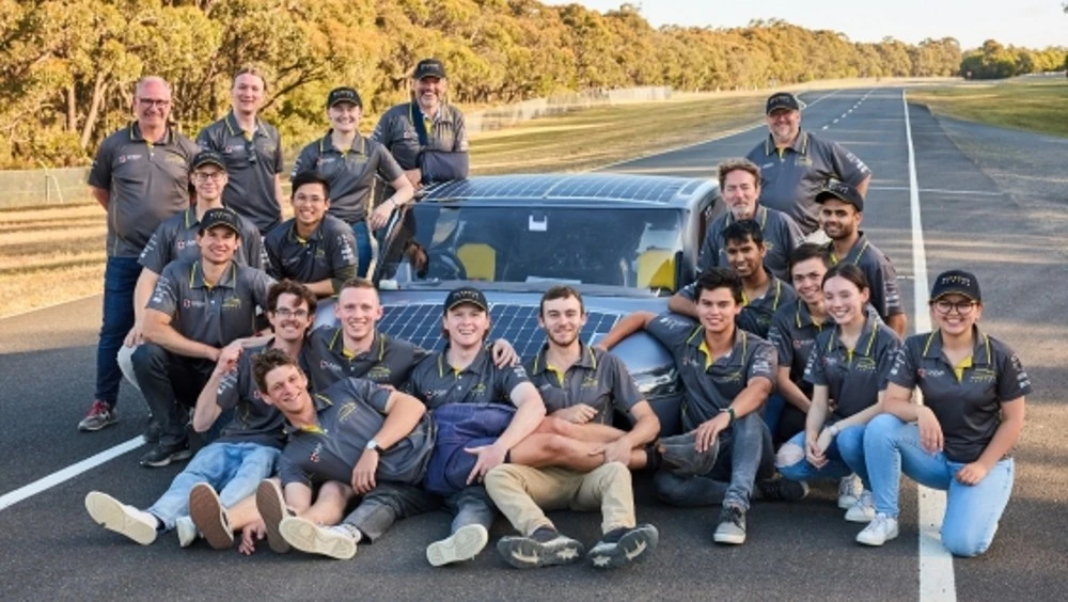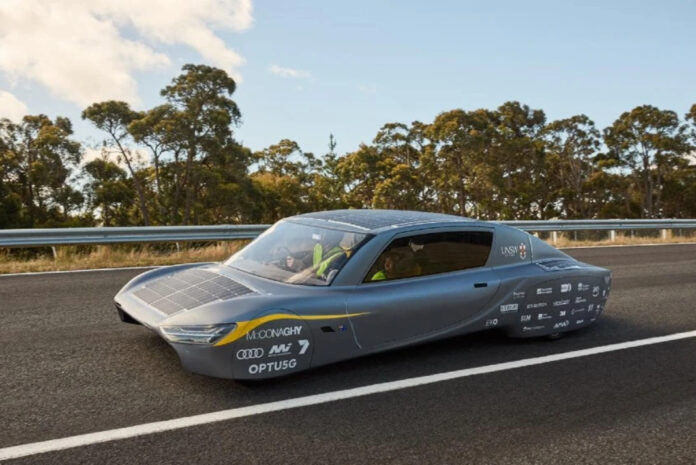UNSW engineering students build fastest solar-powered EV
Making history, University of New South Wales Sydney (UNSW) students build fastest solar-powered EV in the world. Named Sunswift 7, this electric race car recently broke a record by covering a distance of 621 miles (1,000 km) in less than 12 hours at the Australian Automotive Research Center in Wensleydale, Victoria.
This achievement was not only acknowledged, but also certified by the Guinness World Records. Rounding through the facility’s test track 240 times in little over 11 hours and 52 minutes, the Sunswift 7 established the new record of fastest solar-powered EV in the world. After reviewing and validating timing and telemetry data, Guinness awarded the car the title of “Fastest EV over 1000km on a Single Charge”.
As UNSW students build fastest solar-powered EV, their achievements were made possible by two critical factors: aerodynamics and efficiency. The car was developed over two years and has a drag coefficient of 0.095 and consumes a very low amount of energy using only 3.8 kWh per 62 miles(100 km), compared to the average of 15-20 kWh consumed by most EVs on the road today.

Sunswift 7 is a remarkable achievement in the world of solar-powered EVs, and its creation by a group of college students is a testament to the power of education and the capabilities of young minds. The vehicle’s performance at the upcoming Bridgestone World Solar Challenge will surely be a highlight of the race and will continue to push the boundaries of what is possible in the world of solar-powered electric vehicles.
“It feels very weird to think that we’ve helped to make something that’s the best in the entire world,” said Sunswift Racing team manager Andrea Holden on the news that UNSW students build fastest solar-powered EV. “Two years ago, when we started to build this car, everything was going into lockdown and there were a lot of difficult moments. But it’s been so rewarding to see the whole team come together and make so much progress and get us to this amazing point. It was a lot of work and a lot of hours and a lot of stress, but it’s all been worth it.”
